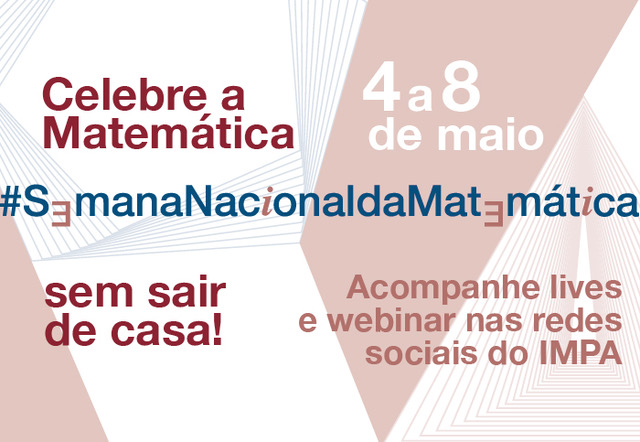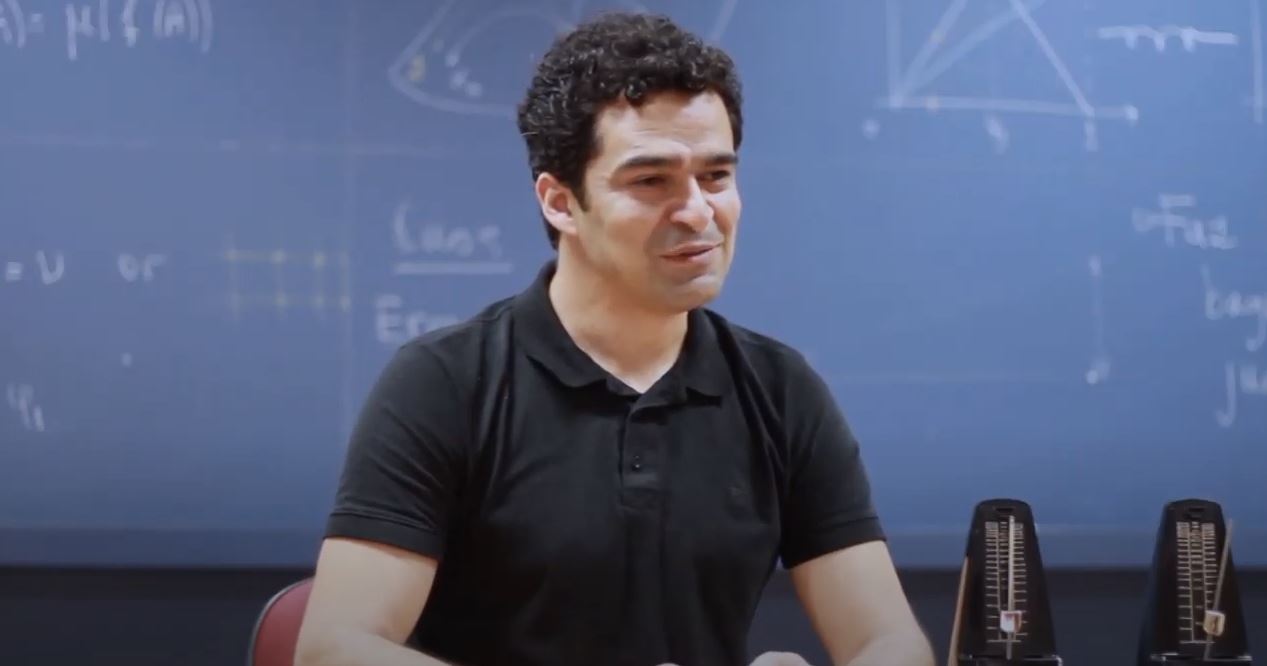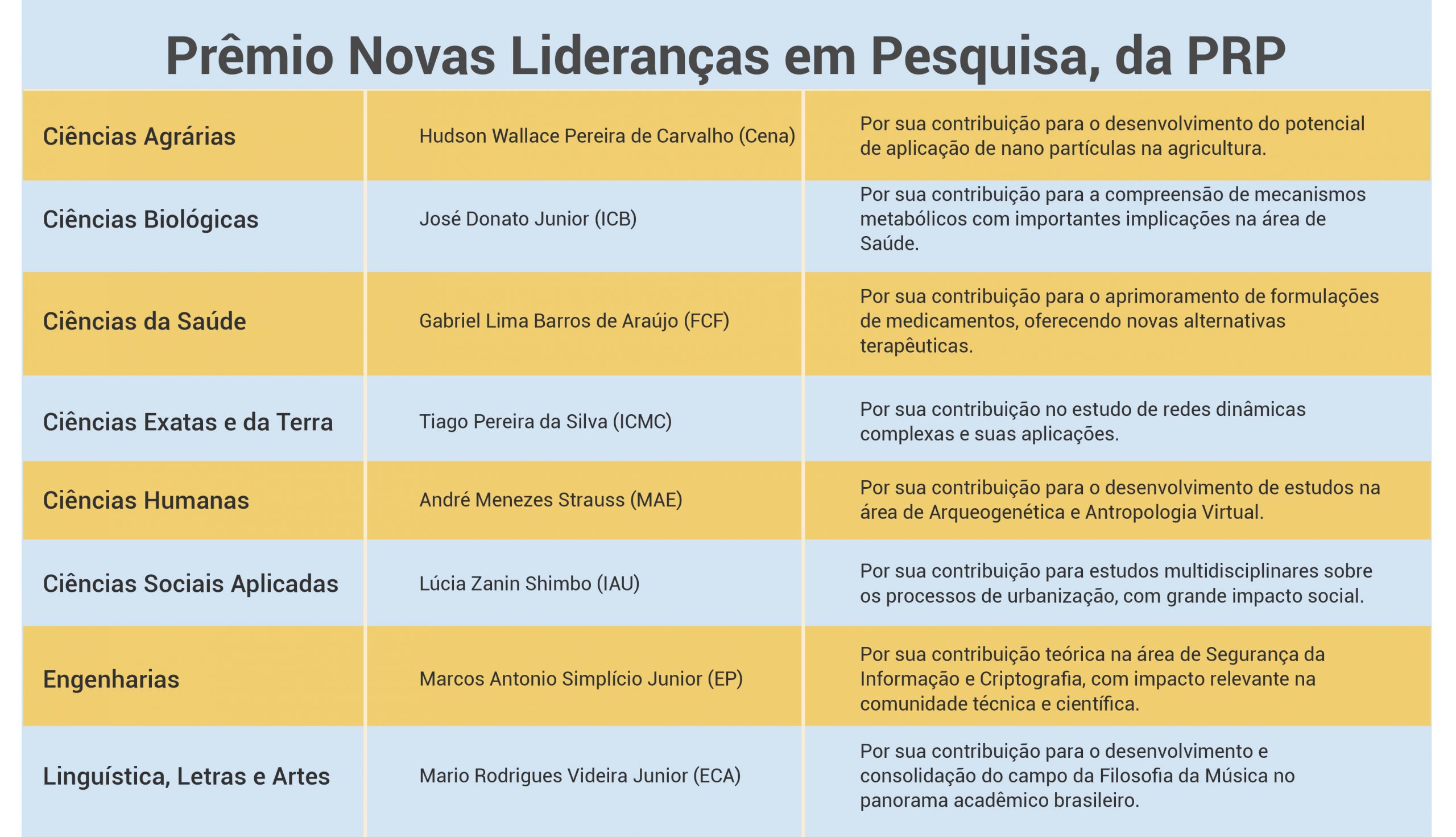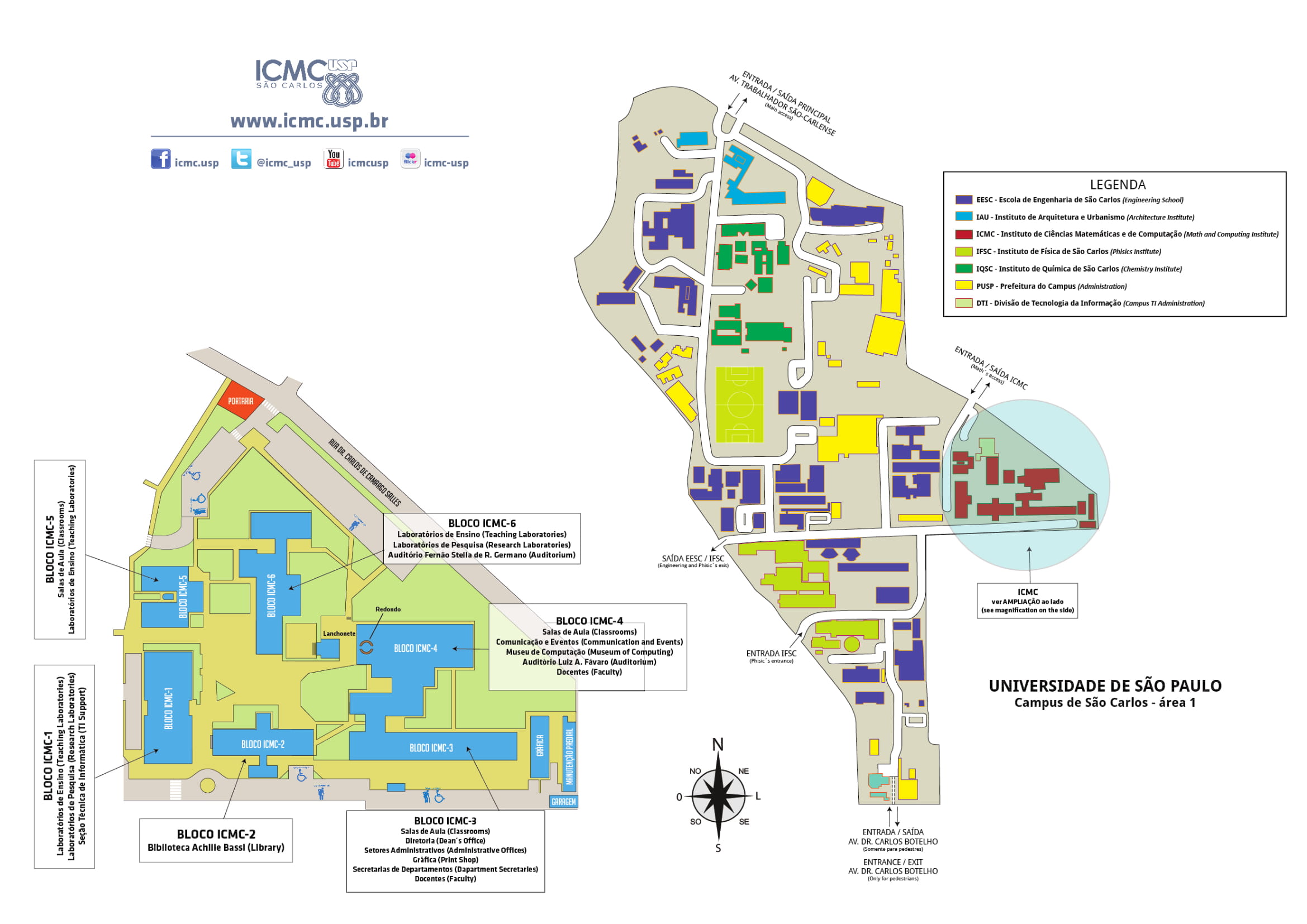Professor do ICMC é reconhecido como nova liderança pela Pró-Reitoria de Pesquisada USP
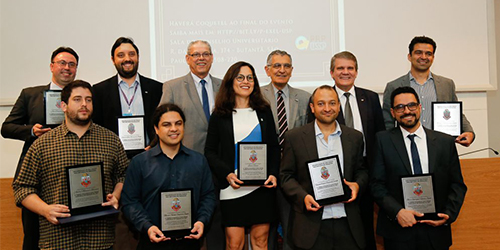
Docentes premiados e dirigentes da Universidade participaram da cerimônia em São Paulo. Crédito da imagem: Cecília Bastos/USP Imagens
São Paulo Dynamical Systems days
The meeting aims at discussing advances in different topics of Dynamical System ranging from randomness to bifurcations aspects. Renowned researchers will give lectures on their expertise addressed to students and professors who are interested in the subject.
Date and Venue
Invited Speakers
Mini courses
-
Dmitry Turaev, Imperial College London – UK
- “On positive metric entropy problem”
- Lorenzo J. Díaz, PUC- Rio – Brazil
- “Construction of nonhyperbolic ergodic measures: controlling averages”
- Vilton Pinheiro, UFBA – Brazil
- “Lift problem and equilibrium states”
Talks
- Diego Sebastian Ledesma, IMECC – UNICAMP – Brazil
- “Foliated Brownian motion and Harmonic measures”
- Eduardo Garibaldi, IMECC – UNICAMP – Brazil
- “Extremal norms for fiber-bunching cocycles”
- Everaldo de Mello Bonotto, ICMC – USP – Brazil
- “Impulsive Dynamical Systems”
-
Fabio A. Tal, IME – USP – Brazil
- “Onset of diffusion in the kicked Harper model”
- Roland Rabanal, PUCP – Peru
- “Hamiltonian stability on open surfaces”
Schedule
Click on the speaker’s name below to see more details
| Oct 24 | Oct 25 | Oct 26 | |
|---|---|---|---|
| Location by color | BLOCO 6 – Auditório Prof. Fernão Stella | BLOCO 4 – 4-111 Auditório Luis Fávaro | |
| 9:00 – 10:00 | Lorenzo Díaz | Lorenzo Díaz | Lorenzo Díaz |
| 10:00 – 11:00 | Dmitry Turaev | Dmitry Turaev | Dmitry Turaev |
| 11:00 – 11:30 | Coffee Break & Poster session | ||
| 11:30 – 12:30 | Vilton Pinheiro | Vilton Pinheiro | Vilton Pinheiro |
| 12:30 – 14:30 | Lunch | ||
| 14:30 – 15:00 | Gabriela Estevez | Adriana Sanchez | El Hadji Yaya |
| 15:00 – 15:30 | Edgar Matias | Konstantinos Kourliouros | Uirá Matos |
| 15:30 – 16:00 | Coffee Break & Poster session | ||
| 16:00 – 16:30 | |||
| 16:30 – 17:30 | Diego Sebastian | Eduardo Garibaldi | Roland Rabanal |
| 17:30 – 18:30 | Fabio Tal | Everaldo Mello | |
| 19:00 – 23:00 | Dinner | ||
The Auditorium’s locations at the ICMC building are shown below. Note that the scientific program above displays different colors in respect to the Auditorium selected for the day.
(Adapted from RECEPÇÃO 2016)
Dinner
The dinner will be held at Espaço Múltiplo
The location and route to the bar is shown at the Additional information below (inside the google maps you will be able to visualize the route).
Participation
How to apply
There is available poster presentation:
-
-
- Posters: Occurring simultaneously to the Coffee Break. It should be indicated the title of poster in the form below.
-
Limited financial support may be available for students, which must be indicated in the form.
Adriana Cristina Sanchez Chavarria (ICMC-USP)
Ali Tahzibi (ICMC-USP)
Ana Carolina Dias do Amaral Ramos (UFMG)
André Muchon Neto (IME - USP)
Camille poignard (ICMC-USP)
Carlos Fabian Alvarez Escorcia (IMECC- UNICAMP)
Carlos Maquera (ICMC-USP)
Cássio Henrique Vieira Morais (UFMG)
Daniel Smania (ICMC-USP)
Diego Sebastian Ledesma (IMECC- UNICAMP)
Dmitry Turaev (Imperial College London)
Douglas Finamore (IMECC- UNICAMP)
Edmilson Roque (ICMC-USP)
Eduardo Garibaldi (IMECC- UNICAMP)
El Hadji Yaya (IME - USP)
Everaldo de Mello Bonotto (IME - USP)
Everton Juliano da Silva (IME - USP)
Fabio A. Tal (IME - USP)
Fernando Cordeiro de Queiroz (ICMC-USP)
Francisco Bruno Gomes da Silva (IMECC- UNICAMP)
Gabriel Ponce (IMECC- UNICAMP)
Gabriel Silva Lucidio (UFSCAR)
Gabriela Estevez (ICMC-USP)
Hans Muller Junho de Mendonça (ICMC-USP)
Herbert Milton Ccalle Maquera (ICMC-USP)
Jessica Xavier (UFMG)
Joyce Aparecida Casimiro (IMECC- UNICAMP)
Konstantinos Kourliouros (ICMC-USP)
Lino Ramada Ferreira Junior (IMECC- UNICAMP)
Lorenzo J. Díaz (PUC - Rio)
Luan Vinicio de Mattos Ferreira Silva (IMECC- UNICAMP)
Marcielis Espitia Noriega (IMECC- UNICAMP)
Marisa dos Reis Cantarino (IMECC- UNICAMP)
Mayara Braz Antunes (IMECC- UNICAMP)
Nelson Orsalino Neto Schuback (IME - USP)
Pedro G. Mattos (IMECC- UNICAMP)
Pollyanna Vicente Nunes (IME - USP)
Rafael da Costa Pereira (UFMG)
Richard Javier Cubas Pereira (ICMC - USP)
Roland Rabanal (PUCP - Perú)
Thaylon Souza de Oliveira (IMECC- UNICAMP)
Tiago Pereira (ICMC-USP)
Uirá Matos (ICMC-USP)
Ulisses Lakatos de Mello (IME-USP)
Valdiane Sales Araujo (UFMA)
Vilton Pinheiro (UFBA)
Zeray Gebrezabher (ICMC-USP)
The link below presents the list of participants for Poster Session:
Additional information
Restaurants and hotels at the ICMC surroundings
Organizers
-
Ali Tahzibi, ICMC
-
Tiago Pereira, ICMC
-
Edmilson Roque, ICMC
Support

Optimal Langevin samplers
Greg Pavliotis
Abstract:
Sampling from a probability distribution in a high dimensional spaces is a standard problem in computational statistical mechanics, Bayesian statistics and other applications. A standard approach for doing this is by constructing an appropriate Markov process that is ergodic with respect to the measure from which we wish to sample. In this talk we will present a class of sampling schemes based on Langevin-type stochastic differential equations. We will show, in particular, nonreversible Langevin samplers, i.e. stochastic dynamics that do not satisfy detailed balance, have, in general, better properties than their reversible counterparts, in the sense of accelerating convergence to equilibrium and of reducing the asymptotic variance. Numerical schemes for such nonreversible samplers will be discussed and the connection with nonequilibrium statistical mechanics will be made.
Phase-specific deep brain stimulation
Hayriye Cagnan
Abstract:
Our everyday actions, from decision making to motor control, are thought to involve information exchange through transient neural synchrony across multiple brain regions. Emerging evidence suggests that a range of neurological disorders such as Parkinson’s disease and essential tremor could be attributed to dysfunction of this fundamental neural property. Deep brain stimulation is commonly used to reduce disease symptoms by delivering high frequency electrical pulses to key brain regions. A new stimulation strategy, called phase-specific deep brain stimulation, aims to selectively regulate neural synchrony. I will highlight some experimental results which show the effect of phase-specific deep brain stimulation for the treatment of patients with pathological tremor and discuss how dynamic causal modelling could be used to infer effect of stimulation on disease circuit.
Everything you always wanted to know about Random Dynamics (but were afraid to ask)
Jeroen Lamb
Abstract:
Despite the broad interest in probabilistic processes in applied mathematics and the popularity of including “noise” or uncertainty as a modelling assumption, our understanding of the dynamics of random systems is predominantly statistical and static, revealing little or nothing about the actual “random dynamics”. In this talk I will discuss this assertion and give examples of open question and a few partial answers.
